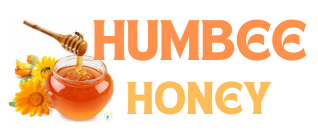Honey and Infant Botulism: What You Need to Know
What is Infant Botulism?
Infant botulism is a form of botulism, a rare but serious illness caused by a toxin produced by the bacterium Clostridium botulinum. This bacterium can be found in soil, dust, and certain foods, including honey. While botulism can affect people of all ages, infants are particularly vulnerable because their digestive systems are not fully developed, making them less able to handle the spores of Clostridium botulinum.
When an infant ingests these spores, they can germinate and produce toxins in the intestines. These toxins interfere with the nervous system, leading to muscle weakness, breathing difficulties, and in severe cases, paralysis. Infant botulism is most common in babies between 2 weeks and 6 months old, but it can occur up to the age of one year.
How Honey Can Cause Infant Botulism
Honey is a known source of Clostridium botulinum spores. While these spores are harmless to older children and adults, they can pose a serious risk to infants. The spores can survive in honey because of its low moisture content and high sugar concentration, which makes it an ideal environment for the bacteria to remain dormant. When a baby consumes honey, the spores can become active in the immature digestive system, leading to the production of the botulinum toxin.
It’s important to note that even a small amount of honey can contain enough spores to cause infant botulism. This includes raw honey, pasteurized honey, and even honey that has been baked or cooked into foods. Therefore, it is crucial to avoid giving any form of honey to infants under one year of age.
Symptoms of Infant Botulism
The symptoms of infant botulism can be subtle at first but can rapidly progress if not treated promptly. Common signs to look out for include:
- Constipation: Often the first symptom, as the toxin affects the muscles involved in bowel movements.
- Weak Crying: The baby’s cry may become weak or less frequent due to muscle weakness.
- Poor Feeding: Babies with botulism may have difficulty sucking or swallowing, leading to poor feeding and weight loss.
- Floppiness: Muscle weakness may cause the baby to become unusually floppy or have a lack of head control.
- Lethargy: The baby may seem unusually tired, with less movement and responsiveness.
- Breathing Difficulties: In severe cases, the toxin can affect the muscles used for breathing, leading to respiratory distress.
If you notice any of these symptoms in your baby, it is critical to seek medical attention immediately. Early diagnosis and treatment can significantly improve the chances of a full recovery.
Treatment for Infant Botulism
Infant botulism is a medical emergency that requires prompt treatment in a hospital setting. Treatment typically involves the administration of botulism immune globulin, an antitoxin that can neutralize the effects of the botulinum toxin. The antitoxin helps prevent the toxin from causing further damage, although it cannot reverse any damage that has already occurred.
Supportive care is also essential, as babies with infant botulism may require assistance with feeding and breathing. In severe cases, a baby may need to be placed on a ventilator to support breathing until the effects of the toxin wear off.
The recovery process can be slow, often taking several weeks to months, but most babies do recover fully with proper treatment. However, the illness can be life-threatening, making prevention the best approach.
Preventing Infant Botulism
The most effective way to prevent infant botulism is to avoid giving honey to infants under one year of age. This includes all forms of honey, whether raw, pasteurized, or incorporated into processed foods. It’s also important to avoid giving babies any products that contain honey, such as certain cereals, baked goods, or cough syrups.
Parents and caregivers should also be cautious about other sources of Clostridium botulinum spores, such as contaminated soil or dust. While these sources are less common, it’s still advisable to keep your baby’s environment clean and avoid exposing them to potentially contaminated surfaces or materials.
What to Do If Your Baby Accidentally Consumes Honey
If your baby accidentally consumes honey, it’s important to monitor them closely for any signs of infant botulism. Keep an eye out for the symptoms mentioned earlier, such as constipation, weak crying, and poor feeding. If you notice any of these symptoms, seek medical attention immediately.
Even if your baby seems fine after consuming honey, it’s still a good idea to contact your pediatrician for advice. They may recommend a check-up to ensure your baby is not at risk of developing botulism.
Humbee Honey Insights
Honey is a natural and nutritious food that offers many health benefits, but it’s not safe for infants under one year of age due to the risk of infant botulism. By understanding the dangers associated with honey and taking precautions to avoid exposing your baby to Clostridium botulinum spores, you can help protect them from this serious illness.
Always read food labels carefully and consult your pediatrician if you have any concerns about your baby’s diet. By staying informed and vigilant, you can ensure that your baby grows up healthy and safe, ready to enjoy honey and its benefits when they are old enough.
